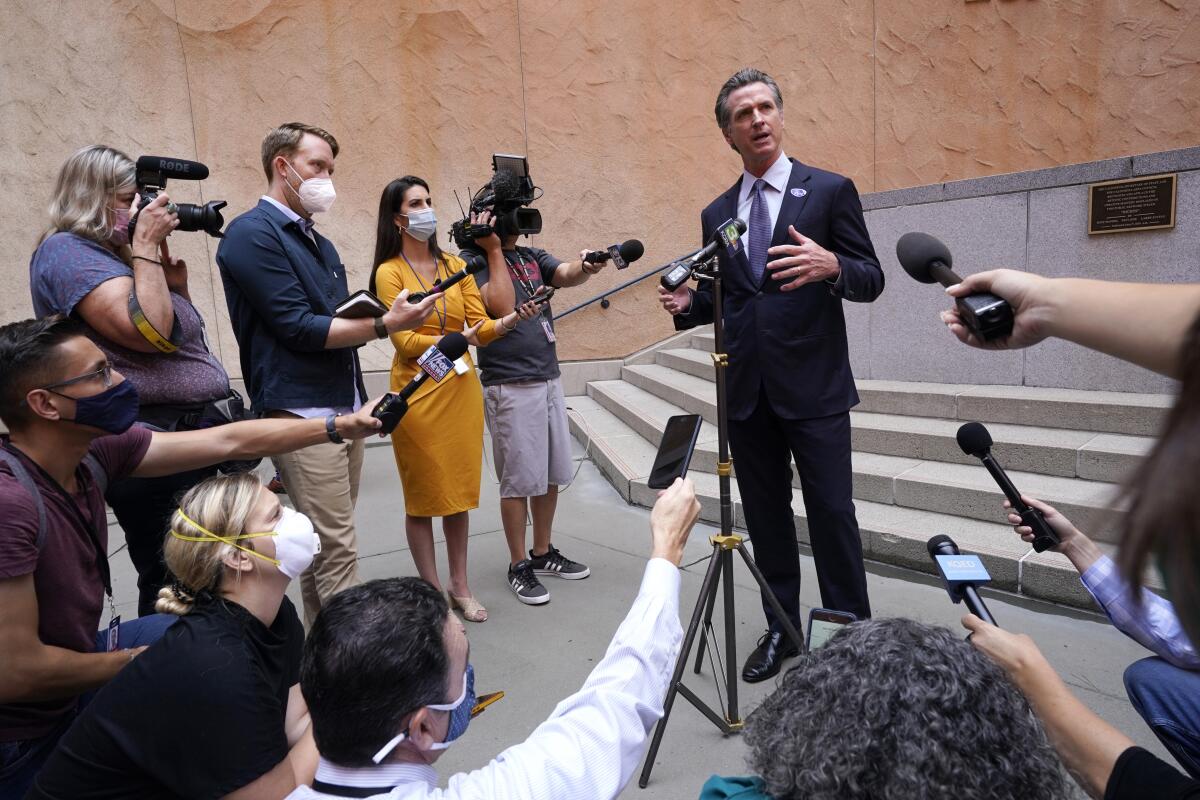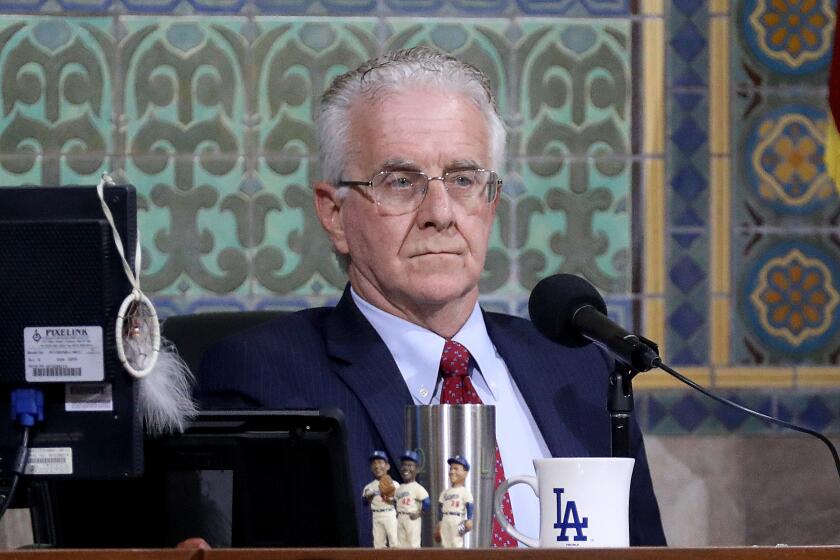Newsom vetoes bills that would have mandated independent redistricting for L.A.

- Share via
Gov. Gavin Newsom has vetoed two overlapping bills that would have forced large California cities to establish independent redistricting commissions by 2030, citing potential unbudgeted costs.
Newsom’s move came as members of the Los Angeles City Council continue to push forward a plan to implement independent redistricting for the city.
In a veto message, Newsom said Saturday that while he supported Assembly Bill 1248‘s “goal of ensuring community control over the redistricting process,” he declined to sign the bill because it would create “a state-reimbursable mandate in the tens of millions and should therefore be considered in the annual budget process.”
Authored by Assemblymember Isaac Bryan (D-Los Angeles), AB 1248 would have required large cities, counties and school districts to adopt independent redistricting commissions by 2030. It would have applied to cities and counties with more than 300,000 residents and school districts or community college districts that have more than 500,000 residents.
Senate Bill 52, a separate bill introduced by state Sen. María Elena Durazo (D-Los Angeles), would have required cities with a population of at least 2.5 million to establish an independent redistricting commission — a threshold that currently applies only to Los Angeles.
The two pieces of legislation were designed to work with each other: AB 1248 had a carve-out exempting cities with a population of at least 2.5 million people from its provisions, as long as SB 52 was also enacted. And SB 52 had a provision saying that it would become operative only if AB 1248 was enacted.
The council’s reform committee endorsed a detailed plan to take redistricting out of the hands of the council. But they postponed action on council expansion once again.
In his veto message for SB 52, Newsom again reiterated his support for the goal, but said he couldn’t sign it because it was contingent on the enactment of AB 1248, which he had vetoed.
Durazo and Bryan said in a joint statement that they were “disappointed” by Newsom’s decision to veto the bills, writing that “an independent and unbiased commission” is needed “to help mend the lack of trust between the community and its government” in Los Angeles.
Los Angeles’ current redistricting process, which gives council members final say over their own district boundaries, has been under extreme scrutiny in recent months.
An incendiary leaked conversation that upended Los Angeles politics last year was recorded during an October 2021 meeting ostensibly centered on the then-underway redistricting process. The audio captured members of the council jockeying for political boundaries that would be favorable to them and their allies.
Get the lowdown on L.A. politics
Sign up for our L.A. City Hall newsletter to get weekly insights, scoops and analysis.
You may occasionally receive promotional content from the Los Angeles Times.
The City Council convened a new committee devoted to government reform in the wake of the leaked audio. That committee has spent much of the last year examining what a truly independent redistricting process would look like and endorsed a detailed plan last week.
The proposal still needs the sign-off of the full council, which must decide whether to place it on the November 2024 ballot for voter approval.
City Council President Paul Krekorian, who previously opposed Durazo’s bill, said Monday that he remained “absolutely committed” to establishing an independent redistricting commission that is free from council influence.
“As I have said all along, decisions about how to govern Los Angeles should be left to the voters of Los Angeles, not mandated by Sacramento. ... But to be clear — with or without state legislation, this Council will continue to advance our proposal to scrap the current scandalously broken redistricting system entirely,” Krekorian said in a statement.
Bryan told The Times on Monday that he was optimistic the city would “solve this problem — of devising and developing an independent redistricting commission that’s responsive to the people.”
But he said he would feel even more confident if there were “guardrails” in place — such as state legislation — to ensure the city acts on its own.
More to Read
Sign up for Essential California
The most important California stories and recommendations in your inbox every morning.
You may occasionally receive promotional content from the Los Angeles Times.















